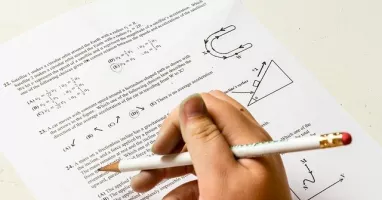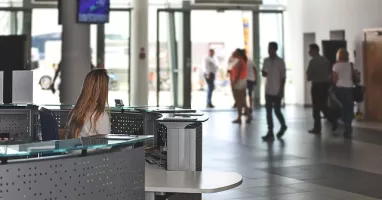The Bachelor of Psychiatric Rehabilitation Techniques has a restricted access.






DEADLINES
Publication Notice of Admission
Registration for the Health Professions Admission Test
Admission test
Publication of rankings
TEACHING LOCATION OF THE DEGREE PROGRAM

In order to be admitted to the Degree Course in Psychiatric Rehabilitation Techniques it is necessary to be in possession of the upper secondary school qualification required by the regulation in force or of another qualification obtained abroad, recognised as suitable.
The Course has programmed access in order to guarantee the quality of the didactic offer in relation to the available resources. The number of students admitted is determined on the basis of national programming and the availability of teaching staff, teaching facilities (classrooms, laboratories) and welfare facilities that can be used to conduct professional training activities.
An admission test is provided for and therefore selection is based on the outcome of the test itself. It consists of multiple-choice questions (usually concerning general culture, logical reasoning, biology, physics and mathematics, chemistry) and will be taken on the date indicated in the specific notice.
Pursuant to Legislative Decree 81/08 and subsequent amendments and additions, each student will undergo an assessment of psycho-physical suitability to carry out the activities of the specific professional profile. An assessment of permanent unfitness shall result in forfeiture of the student's status on the Course.
The course enables students to know and understand the main disorders related to the area of psychiatry and psychiatric rehabilitation and provides a valuable insight into general, social and clinical psychology, as well as into the so-called ‘borderline areas’ of psychiatry, such as child neuropsychiatry, addiction-related disorders, eating disorders and psychogeriatrics.
It also enables the student's educational background to be enriched and completed through annual professional internships in facilities dedicated to psychiatric rehabilitation (Rehabilitation Communities, Day Care Centres, Mental Health Centres, etc.).
The three-year degree entails qualification to practise the profession.
In the Study Course in Psychiatric Rehabilitation Techniques you will acquire a general knowledge of the main psychiatric disorders and an in-depth knowledge of the main psychiatric rehabilitation techniques.
In particular, you will study the following topics:
- Main diagnostic classifications of psychiatric disorders in developmental, adult and geriatric age;
- Methodology of Psychiatric Rehabilitation;
- Assessment of personal and social functioning in Psychiatric Rehabilitation;
- Individual and group Psychiatric Rehabilitation interventions: psycho-educational interventions, Social Skills Training (SST) interventions, Problem Solving interventions, Cognitive Behavioural interventions, Cognitive Remedial interventions and with families;
- Expressive activities;
- Resocialising activities.
Those who obtain a degree in Psychiatric Rehabilitation Techniques carry out their professional activities in public or private healthcare facilities and services on a dependent or freelance basis. Among these can be specifically listed:
- Mental Health Centres;
- Day Care Centres;
- Residential Rehabilitation Communities;
- Psychiatric Diagnostic and Treatment Services;
- Residences for the Execution of Security Measures (REMS);
- Addiction Services;
- Eating Disorder Centres;
- Child and Adolescent Neuropsychiatry Services;
- Geriatric care and rehabilitation services;
- Shelter facilities for minors;
- Shelter facilities for families.
The degree enables professional practice within the following areas:
- Adult psychiatry
- Child and Adolescent Neuropsychiatry
- Psychogeriatrics
- Dual Diagnosis
- Nutrition and eating disorders
- Forensic psychiatry
The functions to be covered include:
- assessing the person's deficit areas and strengths;
- planning and conducting individual and group rehabilitation interventions;
- on-site and at the person's home;
- interventions with the family unit or with multi-family groups;
- prevention and awareness-raising interventions on the territory (schools, municipalities, etc.).
If you have already attended a university course, you can apply for recognition of your previous career:
- if you would like to change course within the University of Brescia, please consult the Changing Course page
- if you come from another university, please consult the Transferring page
Click here for the procedure for Recognition of previous career.
Language certificates
Language certificates may also be recognised. In the section ‘Knowledge of the English language’ of the Studying page, you can consult the procedures and forms and send them via the Infostudent service, path Students’ career and graduation > Accepted certificates of proficiency in foreign languages.
For further details please contact the course education centre of Psychiatric Rehabilitation Techniques.
